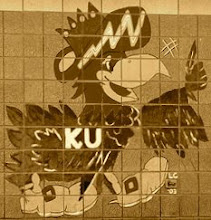The Renaissance Arts of Science and Nature
A Two Day Conference held by the Early Modern Colloquium
The University of Michigan, Ann Arbor
February 19-20, 2010
Keynote Speakers:
Laurie Shannon (Northwestern University)
Carla Mazzio (SUNY Buffalo)
The Early Modern Colloquium, a graduate interdisciplinary group at the
University of Michigan, is requesting submissions for its conference
on the arts of science and nature in early modern culture, to be held
February 19-20, 2010.
Broadly conceived, this conference intends to investigate the
relationship between the arts and sciences in the early modern period.
In contrast to modern disciplinary practices, which tend to
distinguish between – if not divorce – humanistic practice from
scientific endeavor, extant works from the early modern period reveal
a complicated, potentially constitutive relationship between these two
fields of intellectual inquiry, evinced by the term “natural
philosophy”. How might cross-disciplinary thinking – modern and early
modern – inform our understanding of the early modern period? We seek
submissions that address these issues or which respond to any of the
following questions:
To what extent did the arts and natural sciences/philosophies depend
upon one another during the early modern period? How were these
“disciplines” delineated from – and/or defined in relation to – one
another? How can we, as modern scholars, approach and consider
potential dialogues between these disciplines? In what forms did such
exchange(s) take place? What factors enabled the distinction between
the arts and the sciences? How did scientific praxes – including but
not limited to alchemy, humoral medicine, anatomy, mathematics,
geometry, optics, or astronomy – inform early modern culture? How did
such praxes appear within, influence, inform or challenge the fields
of literature, visual art, music, or architecture? How did the
relationship of sciences to the arts inform the orders of nature, the
taxonomies in which humans and animals were placed in relation to one
another? In what ways did craft or artisanal practice enable a merging
of science and art? How might contemporary scientific practice and
knowledge inform our understanding of the arts in the early modern
period?
This conference is co-sponsored by the Early Modern Colloquium, the
Program in Medieval and Early Modern Studies, and the Departments of
English and Romance Languages & Literatures at the University of
Michigan. We therefore welcome submissions from these disciplines and
a wide range of others, including history, art history, musicology,
theater history, philosophy, and anthropology. Priority will be given
to graduate students.
200-250 word proposals should be sent to Andrew Bozio
(bozio@umich.edu) by December 1, 2009.
Friday, October 30, 2009
Subscribe to:
Post Comments (Atom)


No comments:
Post a Comment